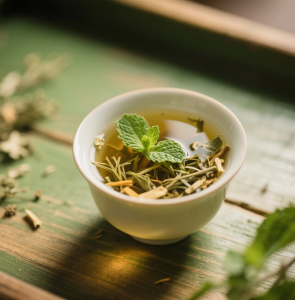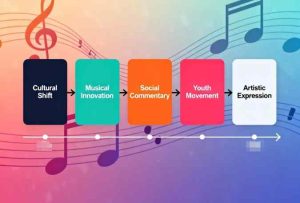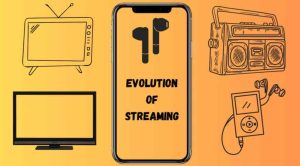
The days after giving birth often feel like a slow-motion blur and a high-speed chase all at once. While everyone congratulates you on your new arrival and reminds you to “enjoy every moment,” few talk about the sheer physical and emotional weight that lands like a tidal wave once the adrenaline of childbirth fades. Postpartum exhaustion isn’t just about being tired — it’s bone-deep fatigue layered with hormonal shifts, healing tissues, night feeds, and the overwhelming responsibility of keeping a tiny human alive. And yet, somehow, you’re expected to function, smile, and bounce back. But you don’t have to pretend you’re okay when you’re barely running on fumes 💭.
I remember standing in the kitchen just four days after my daughter was born, staring blankly at the open fridge, trying to remember what I needed. My legs were shaky, my breasts engorged, and I had slept maybe two hours in broken intervals. A well-meaning friend texted asking how I was enjoying “the magical newborn phase,” and I nearly cried—not because of her message, but because I was too exhausted to even answer. That was the moment I realized this wasn’t ordinary tiredness. This was postpartum fatigue, and I wasn’t alone.
One of the most misunderstood aspects of postpartum recovery is how deeply sleep deprivation impacts not just energy levels but also cognitive function, emotional regulation, and physical healing. New moms often find themselves up every two hours at night, either nursing or bottle-feeding, followed by diaper changes, burping, and soothing. Then the baby sleeps, and instead of resting, we load the dishwasher, pump breast milk, fold onesies, or Google every noise the baby makes. The cycle is relentless, and without intentional rest, burnout becomes inevitable.
Reclaiming your energy starts with redefining what rest actually means. It’s not about getting a full eight hours—because let’s be real, that’s a fantasy in the first few months. It’s about carving out recovery windows, even in unconventional ways. A lactation consultant once told me to “sleep when the baby sleeps,” and I laughed. But later, when I forced myself to nap on the couch during one of her short morning stretches, I woke up thirty minutes later with a clearer head and calmer nerves. It wasn’t perfect, but it helped.
Nutrition also plays a pivotal role in postpartum recovery, though many moms neglect their own meals while obsessing over feeding schedules and sterilizing bottles. During my second postpartum experience, I prepped nothing in advance—no freezer meals, no snack stashes. I lived on cold toast and whatever I could scavenge with one hand. Then a friend brought over a care package with pre-cut fruit, bone broth, high-protein snacks, and lactation bars. That one thoughtful gesture reminded me that nourishing myself was not a luxury; it was essential. Foods rich in iron, healthy fats, and complex carbs help combat postpartum fatigue and support hormone balance. Many high-CPC keywords like “postnatal vitamins,” “meal delivery for new moms,” and “breastfeeding nutrition” connect directly to this often-overlooked need.
Hormonal imbalances can sneak into the postpartum period quietly but can wreak havoc when left unchecked. I didn’t realize my plummeting progesterone was behind my crushing fatigue and intense mood swings until my OB suggested a hormonal panel. It turned out that postpartum thyroiditis—a temporary inflammation of the thyroid after delivery—was the culprit, something many women experience without even knowing. If you’re feeling persistently depleted even with rest and support, it’s worth discussing thyroid function, vitamin D levels, and anemia with a healthcare provider. Targeted supplements and hormone therapy can make a world of difference when fatigue is caused by more than just sleepless nights.
Then there’s the emotional toll. Mental fatigue is just as real as physical exhaustion. You’re learning to parent, questioning every decision, navigating baby blues or postpartum depression, and dealing with unsolicited advice from every direction. There were days I didn’t want to be touched or spoken to—just silence. And that’s okay. Carving out small daily rituals that ground you emotionally, like a cup of herbal tea alone on the porch, journaling during nap time, or even just sitting quietly with your favorite candle lit, can bring micro-restoration. Mindfulness practices and stress relief techniques, such as deep breathing or guided meditations, often searched under terms like “mom burnout recovery” or “natural anxiety relief,” can offer incredible mental clarity over time 🕯️.
Support systems make a critical difference in how deeply postpartum exhaustion affects a mother. My husband and I eventually developed a rhythm where he took over for two hours each morning so I could sleep uninterrupted. Some days I used that time to cry, others to eat in peace, but mostly, I slept—and those few hours gave me the reserves I needed to survive the rest of the day. If a partner isn’t present, calling on a trusted friend, relative, or even considering a postpartum doula can help tremendously. There’s no shame in asking for help. In fact, it’s one of the most resilient things a mom can do.
Movement might feel counterintuitive when you’re exhausted, but gentle activity—like walking around the block with your baby in a wrap or doing a few yoga stretches while they nap—can boost circulation, improve mood, and ease body tension. A mom in my neighborhood shared that she started doing ten-minute Pilates videos during her baby’s morning nap, not to “get her body back,” but to reconnect with herself. She said it made her feel like a person again. Search terms like “postpartum fitness,” “yoga for new moms,” and “energy-boosting home workouts” reflect how essential gentle movement is in building back stamina without creating further depletion.
Hydration also gets overlooked but has a huge impact on energy. Nursing moms, in particular, can lose track of how much fluid they’re consuming. I found that keeping a huge water bottle with lemon slices next to my rocking chair helped me stay consistent. Even mild dehydration can mimic fatigue, fogginess, and low mood. I started drinking coconut water after noticing how parched I felt during nursing sessions and felt noticeably more alert within days.
Sleep associations aren’t just for babies. New moms benefit from establishing wind-down routines, too. I began lighting a lavender diffuser, turning off bright lights, and putting away my phone thirty minutes before trying to sleep. This minor ritual helped signal to my body that it was time to rest, even if the rest came in short bursts. Apps that track sleep quality or offer bedtime meditations—topics like “sleep support for new moms” or “insomnia postpartum remedies”—are popular for a reason. They work when used consistently, especially in conjunction with calming nighttime practices.

Emotional validation matters more than we often admit. One late night, during a particularly brutal cluster feeding session, I posted anonymously in a mom forum asking, “Does this ever get better?” Within minutes, dozens of moms replied, not with solutions, but with solidarity. They wrote things like “I remember this stage,” and “You are not alone.” Sometimes, reclaiming your energy starts with knowing your feelings are valid. You’re not failing. You’re healing. And it’s okay if that healing doesn’t look like the glossy pictures on social media.
There is no magic trick to eliminate postpartum exhaustion completely, but there are dozens of small, intentional acts that can help you begin to feel human again. Whether it’s asking your partner to take the early shift, prepping a nutritious smoothie, sneaking in ten minutes of movement, or simply forgiving yourself for not having all the answers—every bit counts. And sometimes, just hearing “you’re doing enough” is all the energy you need to make it through another day 🌸.







